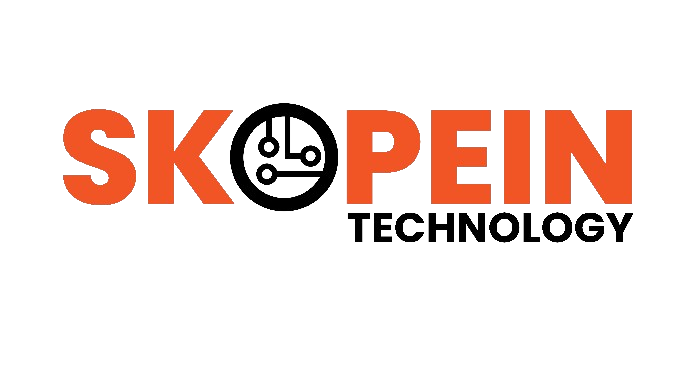What is Search Engine Optimization (SEO) ?
An effective digital marketing tactic is search engine optimization (SEO), which aims to raise a website’s exposure and position on search engine results pages (SERPs). The main goal is to increase a website’s likelihood of ranking highly in search results when people type in relevant search terms.
The technique of increasing the volume and quality of website traffic that search engines send to a website or web page is known as search engine optimization. Instead of focusing on direct or sponsored traffic, SEO focuses on unpaid traffic.
Key components of SEO include –
Keyword Research – SEO (Search Engine Optimization) and content strategy both heavily rely on keyword research. When people use search engines to look for information, goods, or services, it entails figuring out and evaluating the precise words and phrases that they enter. By understanding the language their target audience uses, businesses and website owners may better generate content that fulfills user purpose and boosts search engine rankings. This is made possible by effective keyword research.
On-Page Optimization – One of the core components of SEO (Search Engine Optimization) is on-page optimization, which is the process of improving individual web pages to increase their exposure and relevancy to certain search queries. The objective is to make sure that a page’s information is useful and pertinent to users, while also being accessible and comprehensible to search engines. The following are the main components of on-page optimization.
Technical SEO – The optimization of a website’s technical components to raise its search engine ranking and improve user experience is known as technical SEO. In contrast to on-page optimization, which concentrates on HTML tags and content, technical SEO addresses the technological elements that influence how search engines index, crawl, and rank a website. These are some essential elements of technical SEO.
Content Creation – A key component of digital marketing and having an online presence is content production. This process involves creating different types of information to interest and educate a target audience. Moreover, building brand authority, keeping visitors’ interest, and search engine optimizing a website all depend on producing high-quality, valuable content. These, therefore, are the main components of content production.
Link Building – Getting links from other websites to your own is known as link building, and it’s a vital component of SEO (Search Engine Optimization). The visibility and authority of a website can be affected by these links, also known as backlinks, which are important components of search engine algorithms. Key components of link building are listed below.
User Experience (UX) – The term “user experience” (UX) describes how a user feels about a system, service, or product as a whole. Additionally, it aims to create positive, effective, and meaningful experiences by taking into account a user’s perceptions, emotions, and behaviors both during and after their contact.
Analytics and Reporting – In the realm of business, marketing, and digital presence, analytics and reporting entail the methodical examination of data to extract significant insights. Furthermore, the articulation of these insights in an easily understood manner is crucial. This procedure is necessary to monitor performance, make well-informed decisions, and assess the efficacy of tactics.
Search Engine Optimization (SEO) is necessary for ranking on search engines –
- Increased Visibility : Search engine visibility is increased with the use of SEO. Consequently, a website that has been optimized for search engines is more likely to rank highly when consumers look for information about your industry or content. This increase in visibility enhances the overall reach of your website.
- Organic Traffic : The term “organic traffic” describes users who find a website through natural, unpaid search engine results. Subsequently, these visitors discover the website by entering specific questions into search engines such as Google, Bing, or Yahoo, and then clicking on the organic (free of charge) search results.
- Credibility and Trust : Customers frequently view websites with higher search engine rankings as more reliable and credible. Additionally, trust is developed between search engines and users through SEO techniques, including generating high-quality backlinks and producing informative content.
- User Experience : Page speed, mobile friendliness, and user experience are just a few of the technical elements of a website that are optimized for search engines. In addition to satisfying users, search engines use a positive user experience as a ranking factor.
- Targeted Audience : Using targeted keywords and demographics with SEO makes it possible to make sure that the people who are most likely to be interested in your content see it. The likelihood of engagement and conversion is increased by this focused strategy.
- Competitive Edge : The distinctive benefits and advantages that distinguish a company from its rivals in the market are referred to as a competitive edge. It is the unique set of elements that enables a business to outperform competitors, draw clients, and experience long-term success. These are essential components for creating and preserving a competitive advantage.
- Adaptation to Algorithm Changes : To deliver more accurate search results, search engines change their algorithms on a regular basis. Following SEO best practices makes sure that your website can adjust to these changes and maintain its high search engine ranking.
- Local Search Optimization : Local search optimization, often known as local SEO, is a digital marketing tactic used to increase a company’s exposure in local search results. To make it simpler for local clients to access goods, services, or information, the objective is to improve a business’s online presence for location-specific searches. Key components of local search optimization are listed below.
- Analytics and Insights : The act of gathering, evaluating, and interpreting data in order to derive important knowledge and insights about different facets of a company, website, or marketing initiative is known as analytics and insights. Organizations may enhance performance, optimize strategy, and make well-informed decisions with the aid of this data-driven approach. These are the main components of insights and analytics.
- Cost-Effectiveness : The efficiency of attaining intended results or advantages in relation to the resources, time, and money invested is referred to as cost-effectiveness. Organizations seek to maximize resource utilization in business and decision-making in order to accomplish goals while reducing needless costs.
Conclusion –
In conclusion, SEO is essential to ranking since it improves exposure, attracts relevant traffic, establishes your website’s trustworthiness, and ensures it is technically sound for search engines as well as users. Moreover, it’s a comprehensive strategy that enhances the entire efficacy and success of your web presence. To sum up, search engine optimization, or SEO, is a dynamic and diverse digital marketing approach that is essential to raising organic traffic, improving website visibility, and eventually achieving success online.



Dikenal dengan koleksi permainan yang beragam dan menawarkan pengalaman bermain yang menarik, Slot88 telah menjadi pilihan favorit bagi para penggemar judi online:
akun slot gacor
hatori 77
slot bet 400
slot bet 200
slot bet 200
hatori 77
slot gacor
mahjong bet 200
hatori 77
slot gacor
akun slot gacor